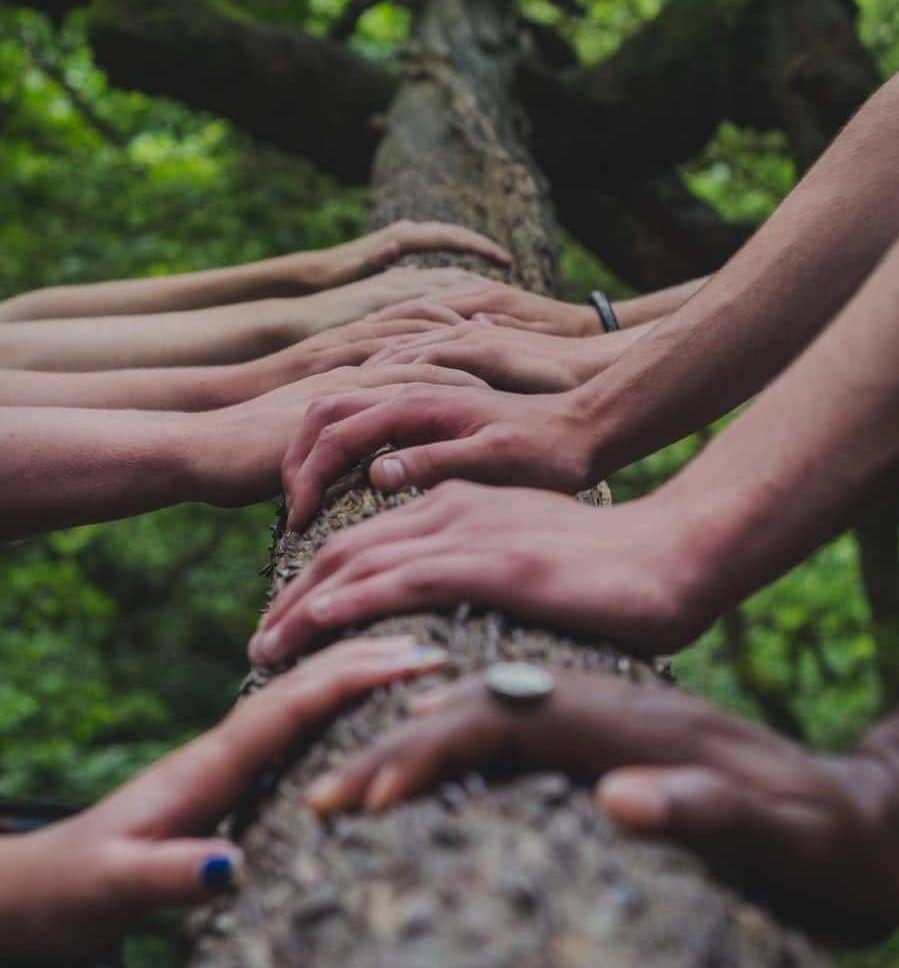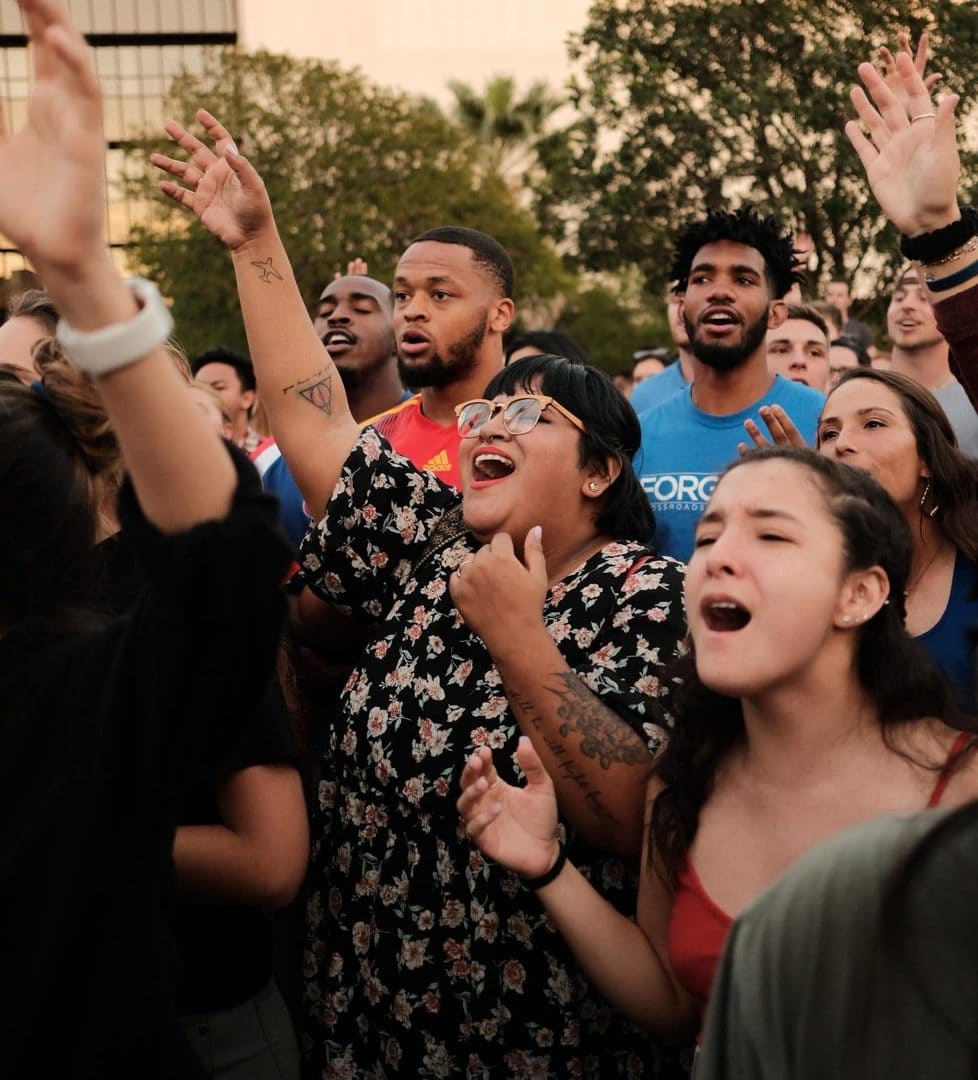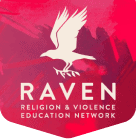In Turbulent Times
I awoke on the morning of the election weighed down by anxiety.
This season of national unrest overlaps with so many conflicts and challenges at all levels: personal, familial, communal. It’s a difficult time for everyone. We’re in a pandemic, largely isolated from one another, finances strained for many, tensions high. While we’re all vulnerable to the contagion of disease and the economic fall-out left in its wake, we’re also vulnerable to the contagions of blame and rivalry, of escalating frustrations exploding into violence. Those on the underside of our nation’s unbalanced power structures – people of color, religious minorities, the LGBTQIA community – are most vulnerable of all. Yet our security and well-being are interconnected, despite our nation being built on exploitation and the deception that for some to win, others must lose.
Divisions are deep, but our ability to move forward depends on cultivating trust and understanding. And that seems impossible while a pandemic of accusation, enmity, anger, and fear sweeps the nation.
So I woke up on Election Day knowing that no matter who won, nothing would be over quickly. Not the pain, not the division, not the enmity. Now that the results are in, some uncertainty has cleared, but the divide remains severe, the work remains hard, and it’s still difficult to know where to begin.
We have a long way to go toward healing, restorative justice, and peace. There are no easy fixes; our complex problems will take patience and creativity and cooperation to work through.
But though the way forward is shrouded in uncertainty, one truth shines clearly through the clouds of confusion: We must build an infrastructure of compassion to even begin the process of moving forward. And while this task will be difficult, our ability to achieve it is built into the core of our humanity.
Divisions are deep, but our ability to move forward depends on cultivating trust and understanding.

I want to explore three guiding principles for building this infrastructure of compassion, principles that apply whether the conflicts we face are personal, political, or an inseparable blend of both. Whatever challenges lie ahead, these truths can propel us forward when we take them to heart:
- We are made from and for Love, and we are interconnected within Love.
- A common struggle is a healthier foundation for unity than a common enemy.
- Living into our interconnection is how we transform our world of rivalry into the Beloved Community.
I’ll explore each of these principles in turn, that we may sweep the stumbling blocks from our path as we journey together on the road to recovery and restoration.
Love Is Who We Are
In the midst of intense conflict, the truth that all humanity is created in and for Love is easy to deny. But if we affirm that God is Love and that we are made in the image of God, then we recognize that every person is meant to be a reflection of Love, an embodiment of compassion, kindness, and service.
We will spend the rest of our (eternal) lives unraveling the mystery of what it means to be made in, from, and for Love. But there are three crucial points to understand now.
First, our interconnection is not a leap of faith. Anthropology and neurology, both intertwined in mimetic theory, teach us that we are made to learn from each other, to share one another’s desires, to imitate each other. Our connection can lead to rivalry and competition as we vie for the same goals, objects, and statuses. But it also leads to our need to be together and our desire for community.
If we know that we are made to be connected, it is easier to affirm that our connection is ultimately rooted in Love. “God is Love” means that Love is the ultimate reality through which all things exist. As living images of Love, we are interconnected and interdependent. Our deepest connection is not competition but communion. This is not just a platitude. Our connection in love is faith meets science, truth we can depend upon.
Next, we are called to love generously and unconditionally. We can push ourselves toward greater love, greater giving, greater patience for understanding, knowing that are secure in Love. So much of what we do is designed to belong, to maintain our place within a circle of friends or group or political party – sometimes afraid to go against an unspoken orthodoxy for fear of rejection. But once we recognize who we fully are within Love, the pressure to prove ourselves fades away. Love frees us to be who we are, and that’s how we can do our part to transform the world.
Finally, if everyone else is also made from and for love, then we have no enemies.
This is hard, especially in tumultuous times when pain is heavy, fears well-founded, dangers real. This is not to put the onus on vulnerable people to put themselves in harm’s way for the sake of peacemaking. That kind of risk for love’s sake is particularly a responsibility for those who are privileged enough to be less vulnerable as we seek to transform privilege into equity and justice.
But it is meant to be a source of hope. Those who act from fear, hatred, or the misguided belief that they can only gain when others lose – are not living into their fullest selves.
If Love is at their core, they can change.
If Love is at our core, we can change whenever we act out of our worst instincts too.
No matter how deeply entrenched enmity or dehumanizing beliefs may be, they are aberrations that cannot last forever.
When we remember that Love is who we are and what connects us, then we learn not only to speak but to listen to the truth in Love. Contours of conversation become shaped not by trying to prove ourselves right, but by seeking understanding. Only by seeing our common roots in Love can we even begin to come together across divides of enmity.
The Olive
Branch
Take A Breath with Us
Our weekly newsletter creates a space to take a breath. Once we slow down, we can see the way desire, imitation, and conflict operate in our lives and in the world, and begin to create peace. In addition to the newsletter, you will receive the free "Unlearn the Bible" ebook when you subscribe.
A Common Struggle > A Common Enemy
The second principle for building an infrastructure of compassion is to recognize the function of an enemy… but then to fill that function with something better.
Because again, if we are all made and interconnected in Love, then at our core, we have no enemies.
So often we feel a sense of belonging by sharing anger or disgust with some against others. As relational beings, we long for others to join in our anger, or the anger of our loved ones draws us magnetically into their rivalries. Scapegoating – drawing identity and belonging by coalescing around an enemy (innocence or guilt is beside the point) – is a universal phenomenon.
And in times of crisis, when people are hurting or afraid, naming and standing against an enemy provides a sense of catharsis and protection if not a solution to the problem. Joining in rage with others helps us feel like we’re in a fight together. In fact, love and enmity go hand-in-hand. When love is not all-encompassing, it is demonstrated in part by fierce protection against perceived enemies.
The truth is that pain and dangers are real, but entrenching ourselves in enmity compounds them. Our enemies – if we must use the language of enmity at all – are not humans but the forces that drain humanity: greed, fear, pride, accusation itself. “For our struggle is not against enemies of blood and flesh, but against … the cosmic powers of this present darkness…” St. Paul tells us. And these powers are not only around but within every one of us. As Aleksandr Solzhenitsyn writes, “The line dividing good and evil cuts through the heart of every human being.” Recognizing that we all get caught up in the scapegoating process is essential to repenting and ultimately ending cycles of scapegoating altogether.
What if we could unite not around a common enemy, but around a common struggle? What if we recognized that to hurt another is to hurt ourselves, not only because violence escalates, but because Love binds us together? What if we shifted from accusation to accountability, insisting on the best within ourselves and others rather than only seeing the worst?
This does not mean overlooking the most pernicious forms of scapegoating: racism, homophobia, bigotry. But it does mean recognizing that the people caught up in these systems are capable of better and holding space for healing. The most important thing about holding that space is that it leaves room for us to recognize and repent when we get caught up in those systems too.
If we recognize that we will always need to guard against destructive tendencies within humanity and especially within ourselves, then we can protect each other not by lashing out against others but by looking after one-another. By recognizing that we are indeed meant to be our brother and sister’s keeper, we can come together not in hatred against another, but in love for each other. Enmity is a false solution to the troubles we face; real solutions require bold compassion to recognize and meet each other’s needs and bold empathy to realize how our own needs are intimately intertwined with those of others.
From Rivalry to Beloved Community
Finally, to build an infrastructure of compassion, it helps to keep the reason for our work ever ahead of us. Goals fall by the wayside when we don’t keep the joyful vision of their achievement in sight.
To build an infrastructure of compassion is to prepare for the inauguration of Love to govern “on earth as in heaven.” When we work to build up trust, to make space for coming together in peace, reconciliation, and reparation, what we are really doing is tilling the soil, that we may plant the Beloved Community in our midst. For the kingdom of God is within and among us when we live into the fullness of Love.
We find ourselves living in the Beloved Community when we put rivalries aside and finally learn to live with and for, not over and against, each other. We can’t even begin to imagine all the wonder and beauty and love that lies ahead when we fully live into our interconnection. Humbly recognizing that we are interdependent beings made not for self-sufficiency but mutual reliance, we’ll delight in contributing our unique voices to the ever-unfinished symphony and hearing the harmonious song of humanity finally in tune to one another.
Building an infrastructure of compassion is just the beginning. It’s simply laying a foundation on which we can even start to address our needs, vulnerabilities, and grievances with enough trust to voice them honestly and hear them without the filters of defenses. But only on this foundation can we continue working through all our tension toward peace.

If we remember we are made in Love, recognize and avoid the stumbling block of enmity, and keep the vision of the Beloved Community ever ahead of us, I do believe the fundamental change within us will bear fruit. As we lay an infrastructure of compassion, love will grow from that foundation within and around us, until God’s will is done on earth as in heaven.

